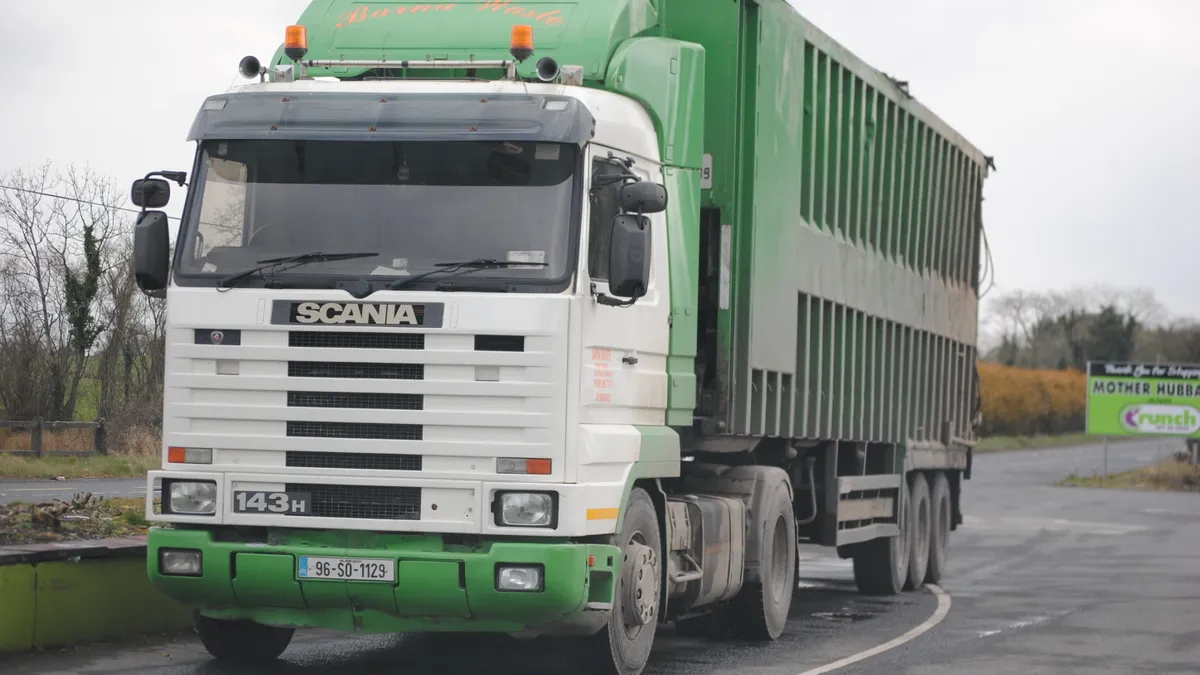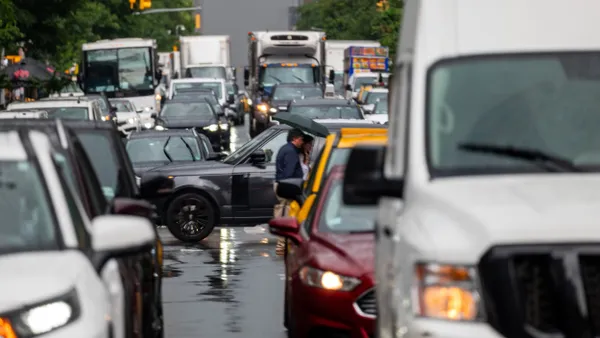Dive Brief:
- A new report from the International Transport Forum and three partner groups estimates that autonomous trucks could reduce the demand for new drivers in the U.S. and Europe anywhere from 50-70% by 2030. Depending on the pace and scale of this shift, up to 4.4 million driving jobs could become redundant, as reported by Fleet Owner.
- This trend could address looming hiring challenges for multiple truck-based industries by potentially reducing the driver demand more quickly than projected shortages would occur. According to the report, an estimated 6.4 million U.S. and European truck driving jobs will be available in 2030 if autonomous vehicles don't become a reality, and it is estimated that only 5.6 million drivers will be available to fill those jobs.
- Even with the driver shortage factored in, job losses are still expected as a result of autonomous trucks. The report recommends that all governments establish temporary transition advisory boards with representatives from industry, labor unions and vehicle manufacturers to manage the shift. The creation of a temporary permit system is also recommended, with some type of financial assistance dedicated to retraining drivers or subsidizing their income if displaced.
Dive Insight:
As outlined in the report, this trend could have wide-ranging effects throughout society far beyond the trucking industry. Vehicle sales could drop across all categories — reducing emissions in turn — if passenger and freight transportation becomes more efficient. In order to manage this the report recommends establishing international operation standards and ensuring that governments maintain a leading role in the testing process rather than letting private companies take full control.
These changes will not happen overnight and are expected to happen sooner for long-distance routes or less challenging suburban areas. This could potentially affect long-distance export routes to disposal sites or the transportation of various recyclables before it hits collection routes. Though Volvo's recent announcement of an autonomous collection truck being tested in Sweden shows that local routes could eventually be affected, too.
While any solution to the driver shortage may be welcome news to fleet managers, the rise of autonomous trucks could present new challenges of displacement and pushback from labor groups. The technology still isn't ready yet, and will likely be expensive whenever it is, but a growing number of people in trucking are beginning to take this idea quite seriously. For any companies in the waste industry that still see driverless vehicles as more science fiction than reality, it may be time to start tuning into the discussion.












